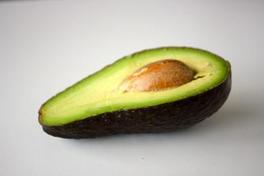
Unfortunately, over the years fats have gained a bad name. However, in the past few decades it has been discovered that we need the good fats in our diet to keep healthy and fight disease. A low fat diet is just as bad as a diet that is high in fat.
Why ‘healthy’ fats are important to diet and how these fats potentially aid in weight loss.
Unfortunately, over the years fats have gained a bad name. However, in the past few decades it has been discovered that we need the good fats in our diet to keep healthy and fight disease. A low fat diet is just as bad as a diet that is high in fat. However it depends on the type of fat, most people eat the kinds that can harm health whereas the essential fats are vital for optimal health. Fats are divided into:
Trans-fats are fats that are implicated in heart disease, cancer, diabetes and other health problems. This type of fat is typically found in many processed foods, pastries, bread, some margarines, cakes and biscuits. These foods may be o.k. for the occasional treat but they are best limited within the diet. Saturated fats are present in meat and dairy and in coconut oil. These fats have been implicated as a cause of heart and cardiovascular disease but now it’s believed that saturated fat is not as bad as it was once thought to be. Studies have been shown to suggest that some saturated fat is required within the diet and for the production of many hormones. We make hormones from cholesterol and fat and some fat is important for our body to deal better with everyday bodily stressors. Omega 3 and 6 – Essential fatty acids. Essential fats are very important as the body cannot make these fats so they must be obtained through diet; these fats have vital implications for our level of health. These fats may help:-
Other good fats include Omega 9 – monounsaturated fat. Although not an essential fat, these are still important within the diet. Sources include olives, olive oil and avocados. The fats to include in your diet are the omega 3 group of fats, sources include oily fish such as salmon, fresh tuna, sardines, mackerel, pilchards, anchovies and trout plus the vegetarian source of flax and chia seeds. Aim to include 3-4 portions of oily fish weekly within your diet. Your body requires more of these oils and, in my opinion many people are deficient in this important oil. Omega 3 fat can help to reduce inflammation in the body, help keep the lining of the gut wall strong, help in keeping the heart healthy, has been shown to have anti-cancer properties, may aid detoxification and protect your cells from potential damage. As I will go on to explain below, these fats may also help aid weight loss in a number of ways. The omega 6 groups of fats include all nuts, nut butters such as peanut, almond butter and seeds such as pumpkin, sunflower, sesame seeds plus their oils. Although omega 6 is important, most people’s diet tends to be too dominant in this fat and too much can contribute to inflammation. Aim for a palmful of mixed nuts and seeds on a daily basis. How fats help aid weight management: When you eat 100g of saturated fat , all your body can do it burn it for energy and any excess is stored as fat. On the other hand, when you eat 100g of polyunsaturated fats such as the omega groups the brain, nerves and skin uses them, and any left the body will use them as energy or to store as fat. In other words, one calorie of saturated fat has an entirely different effect on the body in terms of weight control and health than one calorie of polyunsaturated fat. As long as you eat fewer calories than you burn then your body can utilise your fat stores; meaning you’ll burn fat (and not carbohydrates) as energy, burning more body fat. Exercises such as swimming, brisk walking and dancing can help your body utilise its fat stores (in place of utilising carbohydrates for energy) especially if you exercise over a longer period of time. Our cell membranes have a protective layer containing essentially fatty acids that are vital for helping to keep this membrane flexible and semi-permeable to certain molecules. If your dietary intake of essential fats is too low, the cell wall can become rigid, preventing stored fats from being removed from the cell. Therefore this stored fat can become denser and harder to move. Essential fats such as nuts, seeds and oily fish (but in particular oily fish) are incorporated into the cell wall, helping to soften the cell wall so it becomes less rigid allowing stored fat to be removed from cells, thus potentially aiding in weight loss. As part of a balanced diet, essential fats may help to
There you go; I hope the above gives you several good reasons to why you shouldn’t exclude fat from your diet. Liz Shield
1 Comment
19/3/2024 10:25:58
I had almost given up on losing weight until I discovered this amazing product. It helped me go from 100kg to a stunning 70kg. Don't miss out on this life-changing opportunity https://aaf24-zwhzfu4ubkvbiywhf5d3.hop.clickbank.net to order now and embark on your transformational journey!
Reply
Leave a Reply. |
The Holistic Life CoachHolistic & Natural Solutions for Health and Wellbeing Categories
All
Archives
March 2018
|
COOKIE POLICYWe use cookies on this site to help us improve your experience. If you wish to understand fully how we use these, click through for our 'cookie policy'.
PRIVACY POLICY |
disclaimerAll material on this website is provided for your information only and may not be construed as medical advice or instruction. |
Contact UsSubscribeJoin our mailing list today!
|


 RSS Feed
RSS Feed